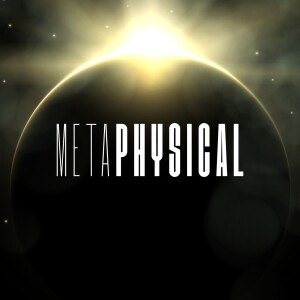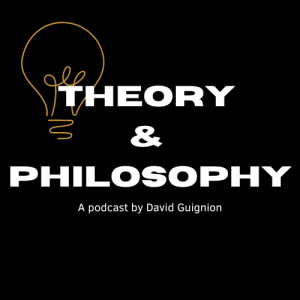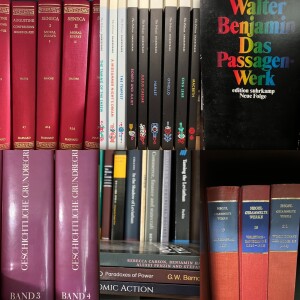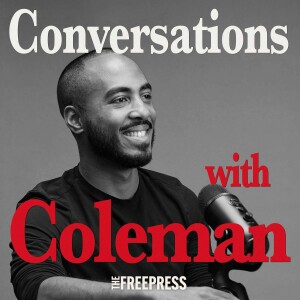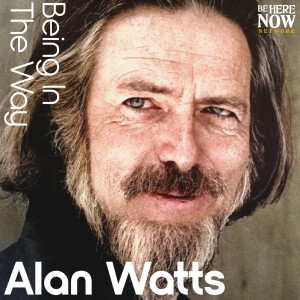

Luke Burgis Newsletter (private feed for rowanjkunz@gmail.com)
https://api.substack.com/feed/podcast/44153/private/1e00fea1-4b48-42d7-8b00-3911ca8460bc.rssEpisode List

Live Trialogue: "I Came to Cast Fire"
I’m pleased to share with you the full video of the trialogue that I had with Fr. Elias Carr, author of the excellent book on René Girard titled I Came to Cast Fire, and Michael Matheson Miller, a good friend and Girard skeptic. I hope you enjoy it.Follow Cluny Journal to keep up with everything going on at Cluny. Lastly, a reminder that there are still a handful of tickets left for the Cluny Metanoia Conference in DC on May 7-8. I hope to see you there! This is a public episode. If you'd like to discuss this with other subscribers or get access to bonus episodes, visit read.lukeburgis.com/subscribe

Liturgical Resistance to Mimetic Contagion
Not nearly as many people are familiar with the thought of Dietrich von Hildebrand as are now familiar with the thought of René Girard—yet I believe von Hildebrand’s work is extremely under-appreciated and that it is critical to understanding the world and the human person.(Pope Francis’s new encyclical, Dilexit Nos, on the topic of the heart, fails to reference DvH’s writings on affectivity, which left me somewhat aghast—but it does make reference to John Henry Newman, von Hildebrand’s most important predecessor in rehabilitating the topic of the heart. Still, the encyclical is representative of the kind of overlooking that DvH often gets.)Last year I asked my friend Michael Matheson Miller, who knows both thinkers well, if he would be willing to do a ‘mash-up’ of them for the 2023 Novitate conference that I hosted in DC, addressing the connections, complementarity, and antagonisms between Girard and von Hildebrand. He graciously accepted.There is certainly a tension at the heart of their philosophies. That’s a good thing. I believe each thinker sheds light on, and clarifies, the other. For instance, I’m often asked a version of this question: “So is it mimesis all the way down, then?” Von Hildebrand would give a resounding: “No!” And in fact much stronger than that: our desires—and with them our entire personality—are shaped by our response to objective values, not mimesis. Mimesis has a role to play in value response, but it does not determine it. Michael, true to form, found a fascinating topic through which to examine the intersection of these two thinkers: liturgy. He and I had first had a long conversation on that theme at Nonna’s Trattoria in Ada, MI. I have not been able to stop thinking about it ever since. I was thrilled to hear, then, that he would pick the topic back up and present a more formal version of it at last year’s conference. I’m proud to be able to share the video of his talk with you all. Happy New Year! This is a public episode. If you'd like to discuss this with other subscribers or get access to bonus episodes, visit read.lukeburgis.com/subscribe

Martin Girard on his Dad, René Girard
This is a free preview of a paid episode. To hear more, visit read.lukeburgis.comLast November I had the pleasure of welcoming René Girard’s son, Martin, to a conference at the Catholic University of America which was titled NOVITATE, taking its name from a line in scripture, Paul’s letter to the Romans:“Do not be conformed to this world, but be transformed by the renewing of your mind” (in the Latin vulgate: “Et nolite conformari huic sæculo, sed reformamini in novitate sensus vestri”). How might we renew our senses in our time? That is the question I was interested in exploring. I felt that René Girard might provide the foundation, or at least the seed, for answering it. We need new models. The old models, from crumbling academic institutions to media formats to longstanding political assumptions, seemed to be passing away. The Czech theologian and survivor of totalitarianism, Josef Zvěřina, wrote about the conversion that leads away from destructive imitation and conformity to the world and towards a kind of continual conversion based on grace that is not reliant on any one particular worldly model:“Do not conform! Me syschematizesthe! How well this expression reveals the perennial root of the verb: schema. In a nutshell, all schemas, all exterior models are empty. We have to want more, the apostle makes it our duty, ‘change your way of thinking, reshape your minds’—metamorfousthe te anakainosei tou noos. Paul’s Greek is so expressive and concrete! He opposes schema or morphe—permanent form, to metamorphe—change in the creature. One is not to change according to any model that in any case is always out of fashion, but it is a total newness with all its wealth (anakainosei).”In the full video, available to paying subscribers, you’ll find an opening intro from me and some closing remarks.

Things Hidden: The Life and Legacy of René Girard
Christmas Day, 1923, was the birthday of René Girard. It is fitting, then—and I am extremely excited to share the news—that a new film on the life and legacy of Girard, directed by Sam Sorich, will be released this Christmas Day. If you are interested in seeing it, I encourage you to visit thingshidden.movie and enter your email to have the film delivered to your inbox on December 25. After you’ve had a chance to watch it, please like, subscribe, and comment on the Youtube page, which will help get the film out to more people. Here is a synopsis:A timely new documentary about René Girard, the thinker who coined “mimetic desire.” Offering a deeply personal portrait of Girard the man and a sweeping narrative of his unfolding thought, Things Hidden: The Life and Legacy of René Girard explores the French polymath’s passion for intellectual discovery, his midlife religious conversion, and his quest to uncover the violent origins of human culture. The film includes exclusive interviews with Girard, previously unknown archival material, and revelations from his family, friends, and colleagues, taking the viewer deep into the life and career of one of the most inspiring and provocative thinkers of our era.I know that Sam and his team were hard at work on this film before I had even conceived the idea for a book on Girard…so this project has been a very long-time in the making. The care, diligence, and effort that went into it is apparent when you watch it. It will be exciting to see how this film brings Girard’s ideas to even more people. I hope you enjoy it! This is a public episode. If you'd like to discuss this with other subscribers or get access to bonus episodes, visit read.lukeburgis.com/subscribe

The Case for Being Wrong
This is a free preview of a paid episode. To hear more, visit read.lukeburgis.comIn this video from one of the breakout session at last year’s NOVITATE conference, host of the popular Martyr Made podcast, Darryl Cooper, explores the lives and ideas of Nietzsche and Dostoevsky, two 19th century thinkers who grappled with questions of morality, religion, psychology and the human condition. Though separated by geography and years, their lives followed a strikingly similar trajectory marked by early promise and recognition, followed by obscurity and intense personal struggles.
Create Your Podcast In Minutes
- Full-featured podcast site
- Unlimited storage and bandwidth
- Comprehensive podcast stats
- Distribute to Apple Podcasts, Spotify, and more
- Make money with your podcast

